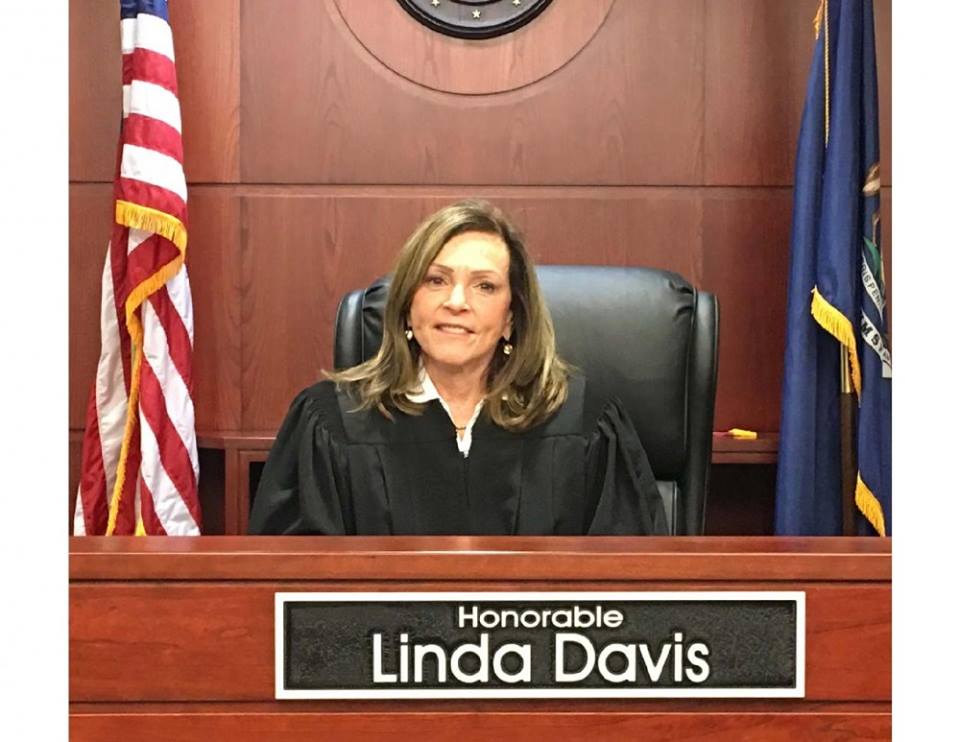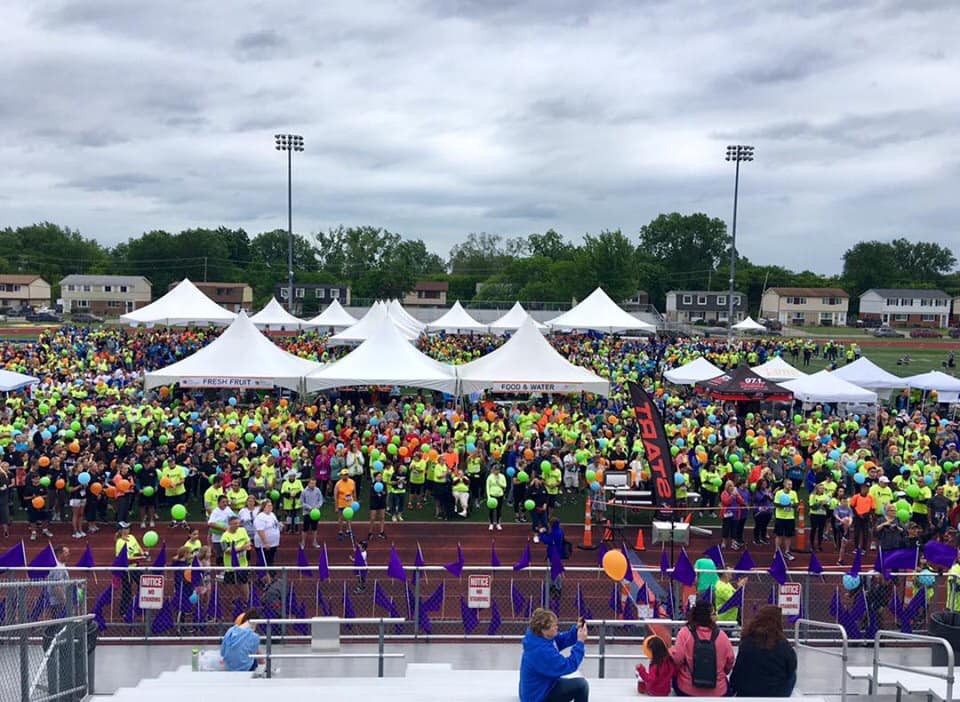Linda Davis recently retired from the 41B District Court to oversee the organization she founded 11 years ago, Families Against Narcotics. Judge Davis founded FAN after her own daughter confessed to struggling with heroin addiction, and she found resources in the community lacking for family support. Since FAN’s inception, the organization has grown to a statewide support and education network with 22 chapters in Michigan and beyond, additionally spearheading partnerships with police through Hope Not Handcuffs to connect those struggling with treatment rather than penalties. She has learned a lot about the topic of addiction and the stigma surrounding it in her career. We were recently able to catch up with her to ask her a few questions about her experience.

You have the unique perspective and insight of being personally touched by addiction, being a judge in a state hit hard by the opioid crisis, being a former prosecutor, and now leading family advocacy and education movement about substance use disorders. Has it been difficult to reconcile these various roles?
In the beginning I had a lot to learn, I thought I understood addiction and yet faced with my own family crisis, I found out I knew very little. It amazed me how little I knew about a subject that I dealt with on a daily basis with my career. I think I had such a stigma about addiction, that I never made it my business to find out more. So much of what we think about addiction is learned from TV, social media etc. I like so many thought someone suffering from an addiction was a moral failing. I had no problem locking people up who suffered from substance use disorder (SUD). The more educated I became, the more I realized it is not a moral failing but rather a disease. I felt a lot of guilt for not understanding this years ago, I often wonder how many families I harmed by my ignorance. I can’t change that, all I can do is be part of the solution and do better today than I did before.
As the 41B District Court Judge, you oversaw Macomb County Drug Court, which was the first in Michigan to institute a medication-assisted treatment program. How can we push more drug courts and more court systems like parole officers to accept medication as a path to recovery?
Education, education, education. Many judges do not understand SUD, so it is important to make it mandatory for judges to receive education about SUD and medically assisted treatment. The big caveat to this however, is we have very few treatment providers that have trained addictionologist that understand what medications are appropriate for what patients. We need to be careful not to lump everyone into anyone category. We need to have some guidelines for when is abstinence a viable option, when should naltrexone be used, when is buprenorphine a better option or when do we recommend methadone. Judges need to be able to trust the treatment providers clearly understand their patience and we also need to make sure patients understand all of their treatment options, the pros and cons. Unfortunately, judges, as well as, law enforcement see the dark side of the diversion of these treatment medications. It is starting to change but we have a long way to go.
“Addiction is not something to be ashamed of, it is a disease, treat it like one and get help.”
How do you feel we can better integrate the medical community into the court system to ensure people struggling with substance use disorders receive appropriate care? Have you started to see this transition happening in Michigan?
We first need to make sure we are making it lucrative for doctors to get into the field of Substance Use Disorder. At the present time, the reimbursements are so poor that it is not financially worthwhile for doctors to enter the field. There just are not enough well-educated addiction doctors to service all of the drug courts in Michigan. I do think drug courts are getting more and more open to MAT. A lot of them are using Naltrexone and drug courts are an ideal setting for this use of the use of this particular MAT. There are so many wrap around services available in drug court: inpatient, intensive out-patient, one on one counseling, group counseling, the support of the entire team on a daily basis including support from the judge, peer coaching, family coaching etc. What we need is a better system of care after a person graduates from drug court. Services are often suspended after drug court: they need to somehow be connected at the end with peer coaching etc. to make sure they can navigate without the security of the team.
Families Against Narcotics works closely with law enforcement to help people find treatment through the Hope Not Handcuffs initiative. As someone in recovery from drug addiction myself, it’s still difficult for me to overcome the fear I have around past experiences with police. What would you say to people hesitant to turn to law enforcement for help?
It is going to take time. We have placed over 2800 people into treatment and our partnership with law enforcement has been amazing. They too, know we cannot arrest our way out of this problem and the more we educate them the more they understand addiction is a disease. We work with over 80 police departments and they are committed to providing help. The fact that law enforcement is taking a different approach is reducing the stigma of addiction and bringing a new awareness to the disease of addiction. With very few exceptions, people were treated with respect and compassion and the end goal is always to provide treatment.
“Don’t isolate, seek support from other families that have gone through this. Addiction is a family disease and when parents seek help, it often helps their loved one. ”
Many people read headlines about the overdose epidemic but aren’t sure exactly what they can do to help. How can Michigan’s residents best support their community in overcoming the crisis?
The best way anyone can help is by being open to education. Attend community events and learn about substance use disorder. People might be amazed at what they learn. Most people don’t realize that 83% of heroin users started with a legal prescription. A lot of people get addicted from a wisdom tooth being pulled or a sports injury, it was not a choice. Parents would be astounded to realize how prevalent drug experimentation is with their children and the dangers of vaping and marijuana use on young minds. Additionally, to get out of this crisis, people need to start respecting the potential dangers of narcotics. People share narcotics, someone comes over complaining of pain and you offer them one of your pain medicines, this is a felony. People have forgotten that. Parents need to treat narcotics like a loaded gun, they are dangerous. We are told time and time again, that a young person’s first drug dealer was a mom, dad or grandma, because those narcotics were readily available in their medicine cabinets. Parents need to store them safely and dispose of unused medications. Kids think they are safe because you have them and doctors prescribe them.

Currently, the treatment system can be difficult to navigate and people struggling with addiction sometimes feel daunted by finding affordable, evidence-backed treatment. What improvements do you think should be made to our current systems to help people get matched with the correct care?
It is terribly hard to navigate the system and there are so many scam recovery centers. Staying involved with a local coalition like Families Against Narcotics or Hope Not Handcuffs can make accessing treatment so much easier. We work with treatment providers, we visit facilities and sober-living home and when we hear something is wrong, we quit using them. Once again being involved in your community organization and educating yourself is crucial. There are also a state hot line and FAN has a Hope helpline that can answer your questions.
“Parents become addicted to their children, it is so important for parents to find healing if they want to be a viable help to their children. ”
You created Families Against Narcotics after your own daughter confessed her struggle with heroin addiction to you. I hope she’s doing well in her recovery today! What advice do you have for family members who have recently found out a loved one is struggling with addiction?
Don’t isolate, seek support from other families that have gone through this. Addiction is a family disease and when parents seek help, it often helps their loved one. FAN offers family coaching for free, reach out and connect. You will find a supportive, non-judgmental environment where you can begin your own healing. Often parents are a block to recovery, they need to understand an appropriate way to love someone with a substance use disorder. Parents become addicted to their children, it is so important for parents to find healing if they want to be a viable help to their children.









